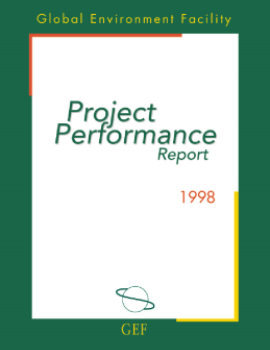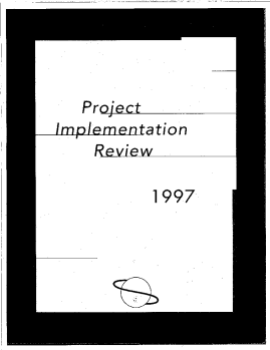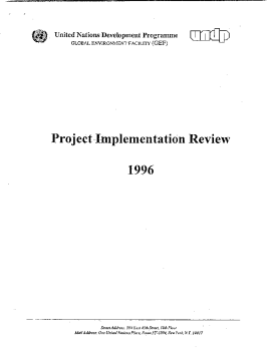The Project Performance Report (PPR), prepared by the GEF Monitoring and Evaluation Unit, presents the results of the 1998 Project Implementation Review (PIR), a monitoring process based upon reporting by the GEF Implementing Agencies (IAs) on all projects being implemented for at least one year as of June 1998. The PIR covers 119 projects. This PPR also draws on information about the performance of GEF programs from evaluations and other studies.
The findings within PIRs are designed to help refine the GEF operation program, improve project design and management, identify scientific and technical questions for further consideration, and identify lessons learned and topics for further evaluation.
The report includes the following general conclusions and recommendations:
- Addressing global environmental problems needs an approach which is longer term and more flexible than current project instruments.
- Sustaining projects after completion of GEF funding is proving more difficult than anticipated and requires longer term horizons.
- GEF should adopt a broader definition of leveraging for its programs to reflect financial resources both during design and implementation and actions catalyzed by GEF activities.
- More emphasis needs to be placed on identifying specific capacity-building needs in order to tailor project design to address key constraints and institutions.
- Indicators need to be developed to measure the application of knowledge gained and others results brought about through capacity building efforts.
- Four topics were identified for in-depth review: i) Achieving financial sustainability in biodiversity projects; ii) Experience with GEF-funded off-grid solar photovoltaics projects, including their impact on GHG emissions; iii) Experience with multi-country implementation arrangements in GEF projects; iv) Overall progress of countries receiving GEF assistance in the ozone focal area in implementing their ODS phase-out programs.
- More needs to be done to disseminate findings of evaluations and use the results to identify topics for in-depth assessments, and feed back lessons learned into new project designs.


